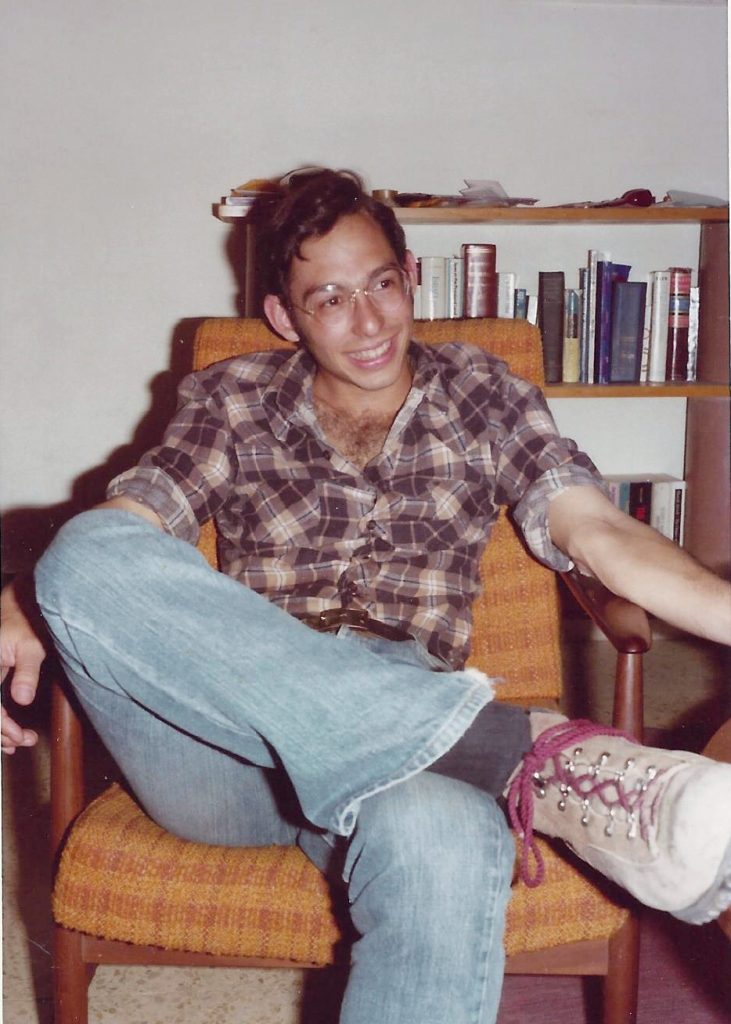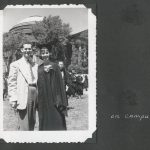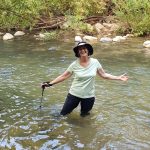Israel Memorial Day 2021 – יום הזכרון תשפ”ש
| After finishing college in the USA, Frank Gilford and his wife Susan made aliyah in 1978. Sadly, Frank died in an accident during IDF training in 1982. Susan remarried and remained in Israel. She recently contacted me, asking if I could share any memories of Frank and the Yom Kippur War, so that she could relate them at her community’s Memorial Day service. In 1973 she and Frank had not yet met. Following is my response. |
Frank and I arrived in Israel on September 12, 1973.
We belonged to a group of 35 high school graduates from all over the United States, who had been members of the Young Judaea Zionist youth movement. Many of us knew each other from Young Judaea activities in our local areas, and from the time we spent together at the national Young Judaea camp, called Tel Yehudah.
I met Frank at Tel Yehudah. He was from Texas. I was from Connecticut. We both like to dance, and became friends one summer during rehearsals for an Israeli folk dance performance.
Upon arrival in Israel on the Young Judaea Year Course, we were transported to Kibbutz Ein Harod Ichud, where we were due to spend the next five months studying Hebrew in an ulpan and working kibbutz jobs. Our rooms on the kibbutz were at the top of the hill, with a beautiful vista across the Jezreel Valley. It was still summer in Israel, with hot weather and dry winds. It probably didn’t bother a Texas-boy like Frank, but was uncomfortable for a New England girl like me.
Before starting our studies and work on kibbutz, we spent a few days in Jerusalem, visiting the famous sites and experiencing the local culture.
Back on kibbutz, we started working – doing such things as picking olives, working in the chicken coops, jumping on cotton, or cleaning the communal dining room – trying out various jobs before we settled on our permanent placements.
On September 23, we finally began our ulpan classes. But just as we began learning Hebrew, we were given time off for the long Rosh Hashanah weekend.
And then, on October 6, as we finally settled into a work-study routine, the Yom Kippur War broke out. Everything changed. I don’t recall having a radio or a television in the ulpan. Even if we did, most of us did not have the language skills to understand the news. Our ulpan teachers fled back to their homes and families in the cities. We had to rely on our two group leaders for news and guidance. Few of us had any friends on the kibbutz who could be bothered to talk to us. They were, of course, totally distracted and wrapped up in their own worries.
For three weeks, we had no mail. But we wrote letters, and later shared letters from our families when mail service resumed. The only telephone we had for communication was in the kibbutz dining room. If our parents in the USA wanted to talk to us, they needed to call the kibbutz phone number at lunch or dinner time. The kibbutz office would then transfer the call to the dining room. If we were lucky, someone would find us, and summon us to the phone.
During the war we spent nights sleeping on mattresses in buildings that were close to bomb shelters. (The ulpan campus had no shelter.) On several occasions, the blare of sirens sent us running to shelters, where we sat for an hour or more.
None of us ever considered leaving Israel during the war. I don’t think any parents asked their child to return to the USA. Maybe we did not realize how utterly dire and serious the situation was. Maybe it was because we felt sheltered and safe on the kibbutz. Maybe it was because we were true Zionists and felt strongly about our purpose for being in Israel.
We continued to work at our assigned jobs during the war, or got reassigned to other tasks. We felt needed. We felt we belonged.
Eventually, ulpan classes resumed, and we managed to learn some Hebrew during our time on kibbutz. To celebrate the end of stay on kibbutz, our group wrote and performed a musical show for the kibbutz members, with songs and skits in basic Hebrew that humorously summed up our experiences. Together, Frank and I choreographed and performed a dance set to the song Shir HaEmek. Ever since then, whenever I hear that song, I think of Frank, our time on kibbutz during the Yom Kippur War, and our dance together.
Frank Gilford – IDF Memorial Site (Hebrew)
Young Judaea, Year Course, 1970s and Beyond – Photo album

Related: Bittersweet Serendipity While Cycling Near Shaar Hagai

